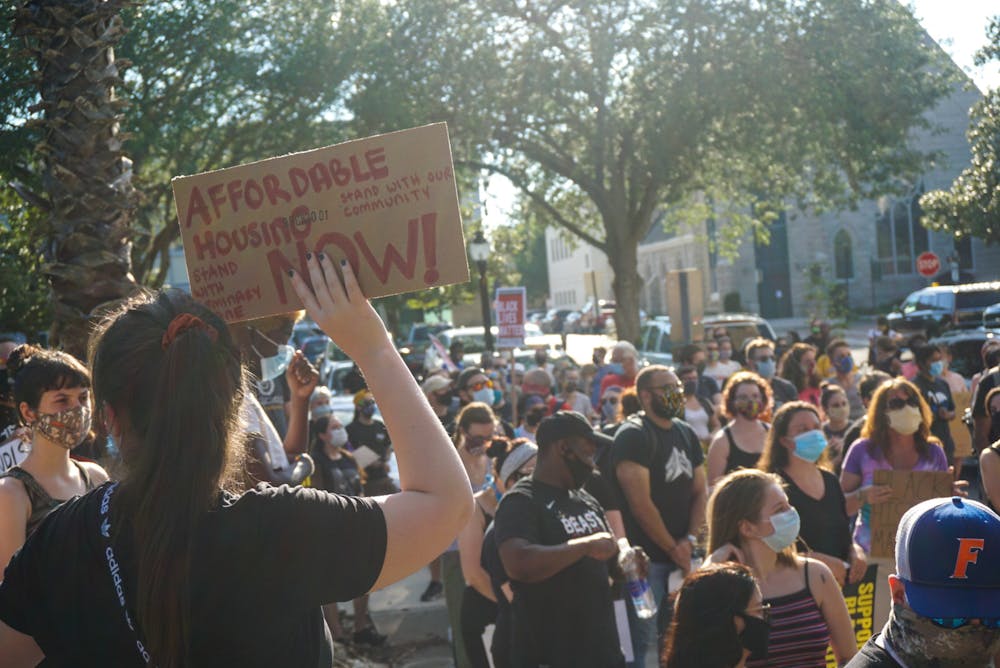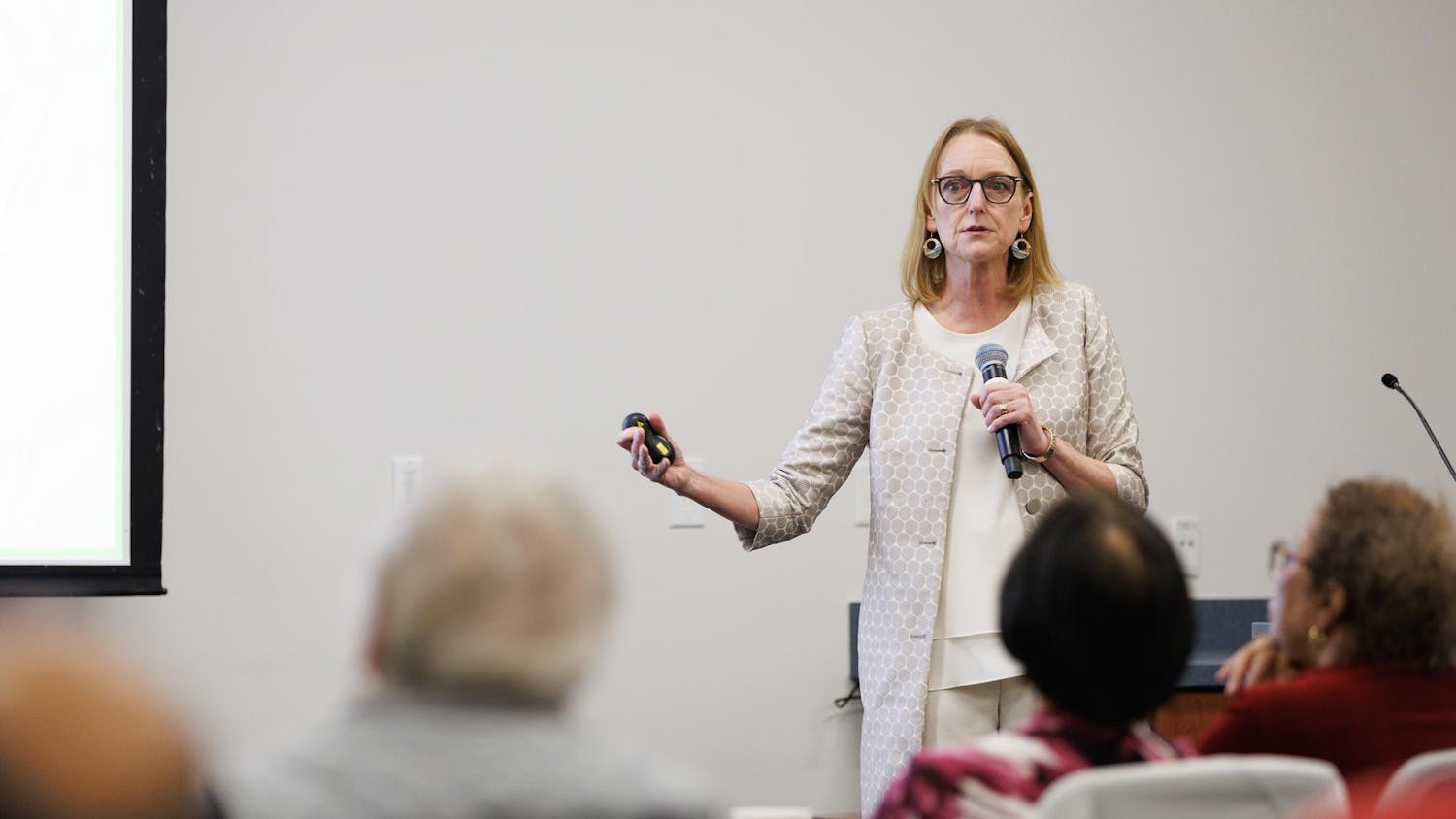Gainesville may become the first Florida city to eliminate single-family zoning in an effort to offer additional housing near campus and in residential areas.
The potential amendment mirrors Minneapolis, Portland and Seattle’s systems, which allow developers to build two-story multifamily units, like quadruplexes, in residential areas. The proposal also removes restrictions that limit occupancy to one family and limit the number of bedrooms per structure.
Residents expressed opposition to amendments in public meetings, petitions and online; they fear the city may continue to lose its charm to developers after the closures of Sweetberries Eatery and Frozen Custard Sunday and The Swamp Restaurant in 2020.
Kurt Johnsen, a 66-year-old Gainesville resident and landlord who lives in the Kirkwood neighborhood off of South Main Street, created a petition to alert commissioners toward resident opposition. It has garnered more than 2,100 signatures and about 100 comments since July 1.
“The one certain thing we're going to have is change,” he said, “but you can manage the change, and you can look for consensus.”
The city commission has not done that, he said.
“They preach from the altar,” he said. “They're going to pass this whether we like it or not.”
Johnsen rents properties to students, who bring youth, vitality and diversity to single-family residential neighborhoods. The new changes push that dynamic in the opposite direction, and do not solve affordable housing issues, he said; developers would likely demolish existing affordable houses to build the multifamily units.
Mariah Rollins, a 48-year-old Gainesville resident who lives in the Hazel Heights neighborhood, said the commission’s push to eliminate single-family zoning is meant to appease people who profit from the student population, like developers.
As a Gainesville resident for nearly 17 years, Rollins said she has noticed the commission caters more to the student population and less to local or low-income residents.
“It seems like people owning their own homes has become more of a liability,” she said. “It doesn't seem like they're really trying to find ways for people to own their own homes.”
The issue is much bigger than zoning changes, she said. She fears the commission is steering toward a dystopian agenda.
City Commissioners and mayoral candidates David Arreola and Harvey Ward shared their opposing stances at an Oak Hammock candidate forum Tuesday. Arreola, along with Mayor Lauren Poe and Commissioners Adrian Hayes-Santos and Reina Saco, assure the change will help solve Gainesville’s affordable housing crisis. Ward, with commissioners Cynthia Chestnut and Desmon Duncan-Walker, opposed the proposal.
Chestnut said she has never seen an issue unite Gainesville more than the opposition for eliminating exclusionary housing; the proposal will not help gentrification, but it will reduce residents’ property value, she said.
“It's not going to help achieve the goal for African Americans and for anyone who's really trying to achieve the American dream,” she said.
The commission should explore inclusionary zoning, an approach that incentivizes developers to help provide affordable housing for moderate-income households, she said.
Residents recommended the city pause the elimination of single-family zoning citywide and only implement zoning changes to select neighborhoods, but Johnsen said the commission dismissed their recommendation formed at the city plan board meeting June 6.
Chestnut said the city’s dismissal of the recommendation was disconcerting.
A gradual citywide implementation would allow multi-family units to develop in historically white neighborhoods, Hayes-Santos said, rather than exclusively historically Black neighborhoods. It would level the playing field and tailor development to each neighborhood’s character.
“We have to start somewhere,” he said. “We can't keep delaying dealing with the housing issue… We're having a housing crisis because we've continued to delay things.”
The elimination of exclusionary zoning — which commissioners first passed in the 1950s — would increase the number of houses inside the city limits and reduce gentrification, traffic, housing cost and urban sprawl, he said.
Melanie Corrales, an 18-year-old UF digital arts and sciences sophomore, was able to secure housing at Oakbrook Walk Apartments with her sister’s guidance, which, she said, is difficult for most residents to achieve.
Even though college students account for 50% of Gainesville’s population and their ability to obtain affordable housing is crucial, Corrales said, there are other residents within the city that also need affordable housing.
The city commission rescheduled its vote from July 13 to Aug. 4.
Contact Mickenzie Hannon at mhannon@alligator.org. Follow her on Twitter @MickenzieHannon.

Mickenzie is the local elections reporter and previously covered city and county commission for The Alligator’s Metro Desk. She's a fourth-year journalism major and is specializing in data journalism. When Mickenzie isn’t writing, she enjoys watching horror movies, reading, playing with her pets and attending concerts.






